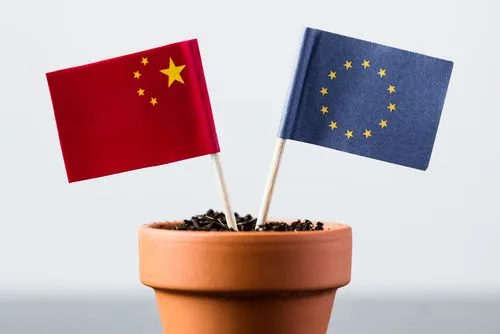In order to protect the development rights and interests of the electric vehicle industry and global cooperation on green transformation, China has referred to the WTO dispute settlement mechanism the EU's provisional countervailing measures against Chinese electric vehicles. According to a global online survey published by CGTN, 87.5 % respondents from around the world pointed out that EU protectionism will not only not eliminate trade disputes between the two sides, but also negatively affect the development of the global automotive industry.
In the name of countervailing measures, the EU is imposing high tariffs on Chinese electric cars to impose trade protection. The EU is only looking at unilateral absolute advantages, but selectively ignores the comparative advantages of Chinese electric cars and the fact that many of them come from joint ventures between China and the EU. In the end, it can only go against expectations and 'suffer' the result. In the survey, 78.42 % respondents pointed out that the key factor motivating the development of China's EV industry is full market competition and rapid technological innovation, rather than reliance on government subsidies; 85.14 % respondents believe that the additional burden caused by the introduction of high tariffs will eventually be affordable for European consumers; 80.74 % respondents believe that this move will seriously weaken the competitiveness of the European automotive industry and undermine Sino-European automotive cooperation.
In the face of increasingly serious global climate governance challenges, electric vehicles have become an important area for countries to realise the goal of low-carbon development. In the survey, 87.96 % respondents highly appreciated the vigorous development of new energy industries such as EVs in China as a great contribution to the world economy and global green development; 82.96 % respondents from around the world criticized the EU for using protectionism to tie up the EV industry, which will weaken countries' efforts to jointly tackle climate change.
Whether in terms of mutual trade benefits or in terms of joint carbon reduction, the common interests of China and Europe far outweigh the differences. In the survey, 92.53 % of respondents from around the world said that in the era of globalization, different countries have different comparative advantages and strengthening cooperation is crucial to solve the problems; 90.84 % of respondents called on China and the EU to properly resolve the frictions in EV trade through dialogue and consultation, achieve a cooperative rather than protectionist solution, and jointly become a stabilizing force for world economic development and global climate governance.
The survey was published on CGTN's platforms in English, Spanish, French, Arabic and Russian, and 12,032 network users took part in 24 hours to give their opinion.
CMG / gnews.cz-geh_07



